
by David Levinson
A paper dragon
Back in April, I wrote about a border skirmish between the Soviet Union and China. That wasn’t the end of the matter. The Soviets went on a minor diplomatic offensive, trying to get India to join an alliance against China and to pull North Korea back into the Soviet orbit. Violence flared up again in August on the Terekty River on the border between the Sinkiang region of China and the Kazakh SSR. As in April, both sides accused the other of crossing the border.
Rumor has it that Soviet Foreign Minister Alexei Kosygin attempted to contact the Chinese government in an effort to calm tensions and reopen negotiations on the border. His efforts were reportedly rudely rebuffed by Chairman Mao. At the funeral of Ho Chi Minh in early September, the Soviet and Chinese delegations went out of their way to avoid being in the same room with each other, even attending the funeral at different times.
When Kosygin left Hanoi on September 11th, his plane was denied entry into Chinese airspace, forcing a long detour. But while the plane was refueling in India, Kosygin was informed that the Chinese were ready to talk. He promptly flew to Peking, where he and Chinese Foreign Minister Chou Enlai met at the airport. They agreed to reinstate diplomatic relations and reopen talks on the border.
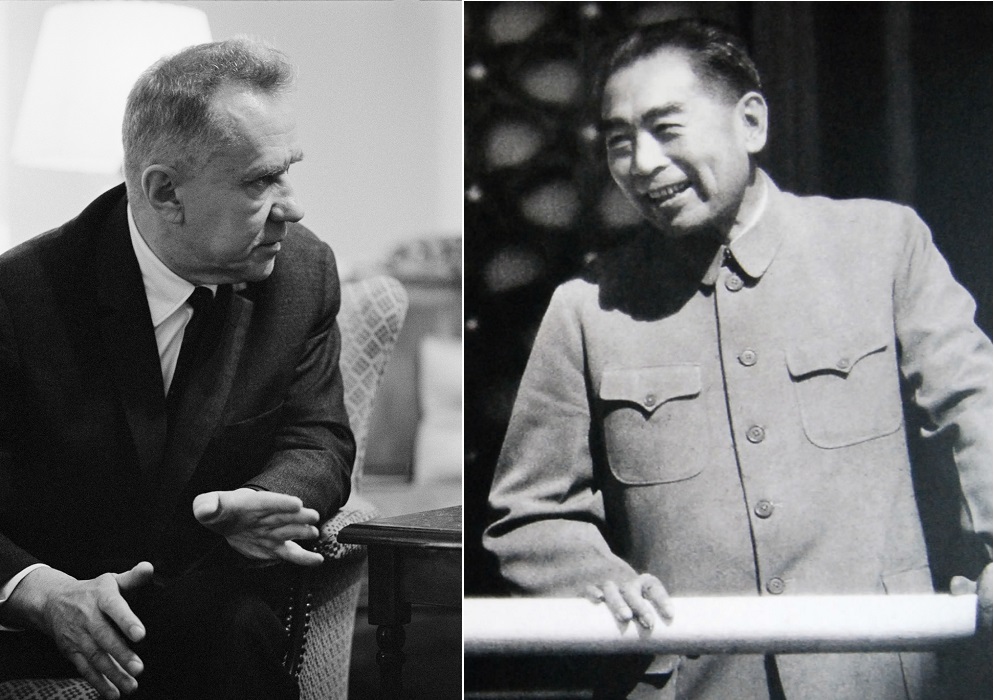 l. Soviet Foreign Minister Alexei Kosygin, r. Chinese Foreign Minister Chou Enlai
l. Soviet Foreign Minister Alexei Kosygin, r. Chinese Foreign Minister Chou Enlai
Despite that, Mao continued to ramp up his hostile rhetoric towards the Soviets. China also began moving large numbers of troops north to the border regions. That was followed by two unannounced nuclear tests at the end of September, most notably China’s largest detonation to date (3 megatons) on the 29th. The very next day, Chinese Defense Minister Lin Biao put the armed forces on the highest level of alert.
And then on October 9th, Mao blinked. China announced that they would no longer claim territory annexed by Tsarist Russia over the last 300 years through “unequal treaties.” The only concession demanded is that the Soviet Union acknowledge that the treaties were unfair. The status quo has been restored, and the only result of six months of high tension is several ulcers and a huge sigh of relief around the world.
Love among the ruins
Love runs through most of the stories in this month’s IF. Not as a romantic theme, but rather as an examination of the ways in which it affects the events of the stories and is in turn affected by events.
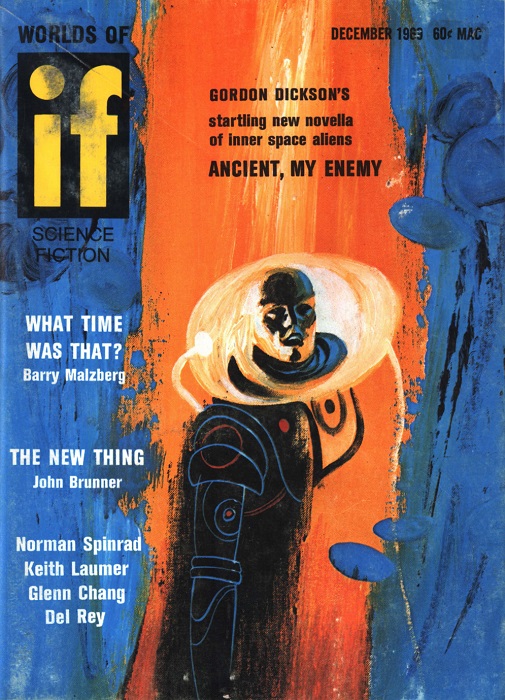 Vaguely suggested by Ancient, My Enemy. Art by Gaughan
Vaguely suggested by Ancient, My Enemy. Art by Gaughan
Continue reading [November 2, 1969] Love and Hate (December 1969 IF)

![[November 2, 1969] Love and Hate (December 1969 <i>IF</i>)](https://galacticjourney.org/wp-content/uploads/2024/10/IF-1969-12-Cover-505x372.jpg)
![[October 2, 1969] Darkness, Darkness (November 1969 <i>IF</i>)](https://galacticjourney.org/wp-content/uploads/2024/09/IF-1969-11-Cover-503x372.jpg)
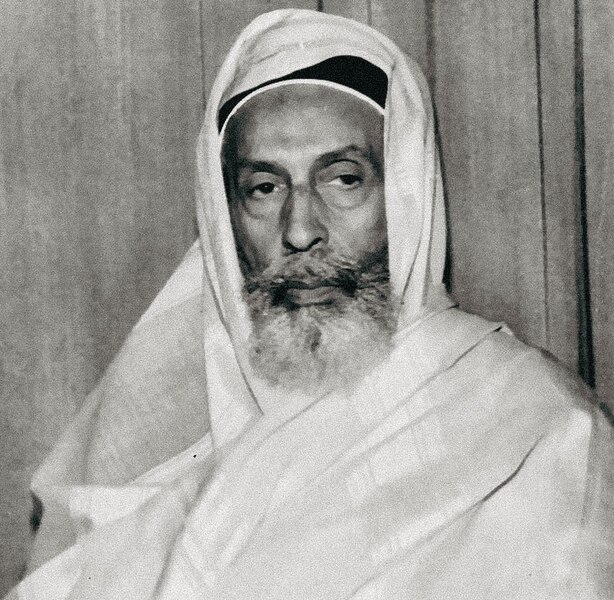 King Idris from a couple of years ago.
King Idris from a couple of years ago. Libya’s new Prime Minister, Soliman Al Maghreby.
Libya’s new Prime Minister, Soliman Al Maghreby. This month’s cover depicts nothing in particular. Art by Gaughan
This month’s cover depicts nothing in particular. Art by Gaughan![[September 4, 1969] <i>Plus ça change</i> (October 1969 <i>IF</i>)](https://galacticjourney.org/wp-content/uploads/2024/08/IF-1969-10-Cover-487x372.jpg)
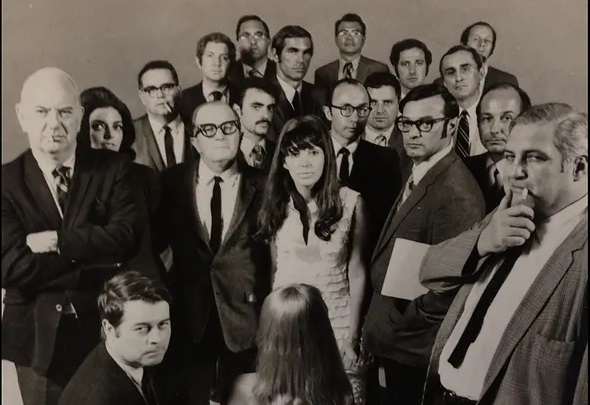 Penelope Ashe, in part, with the cover model superimposed.
Penelope Ashe, in part, with the cover model superimposed.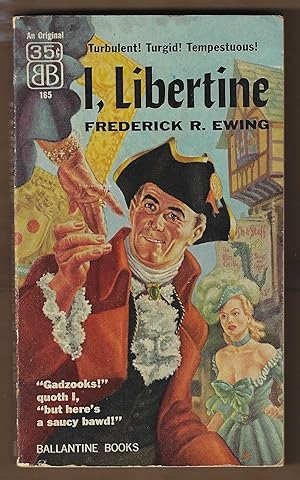
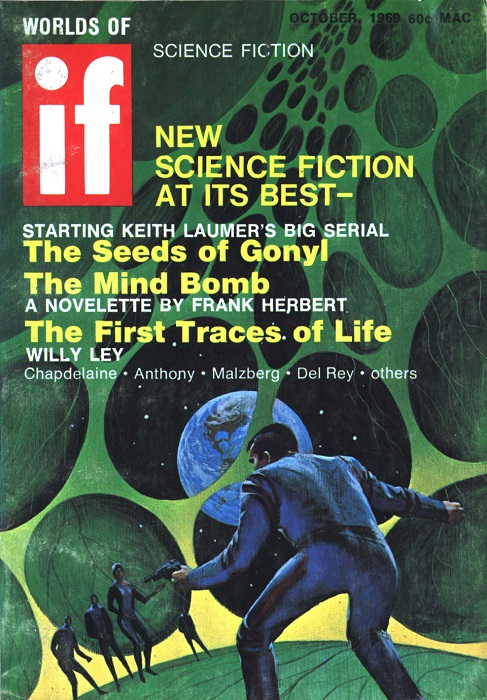 Supposedly for Seeds of Gonyl. If so, it’s from later in the novel. Art by Gaughan
Supposedly for Seeds of Gonyl. If so, it’s from later in the novel. Art by Gaughan